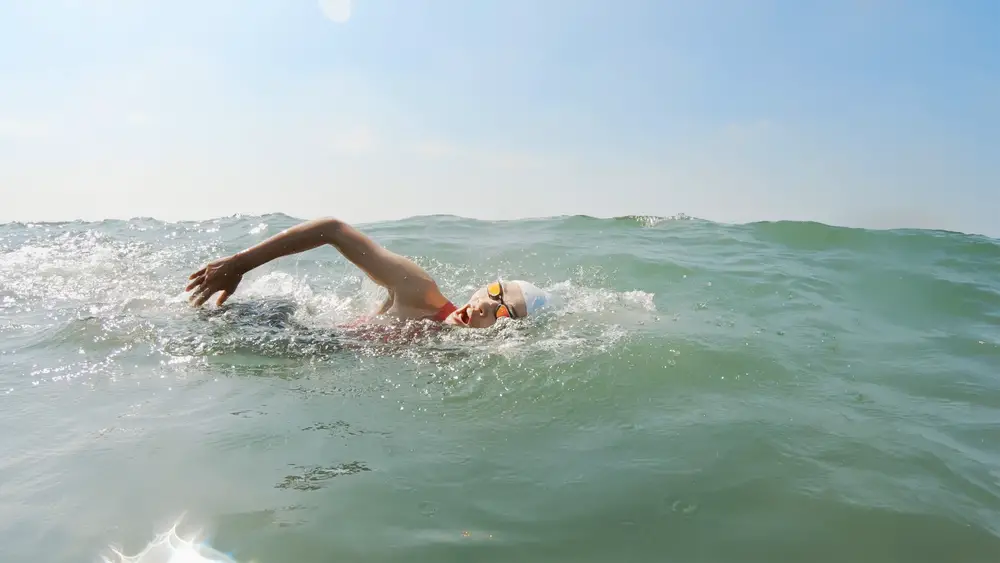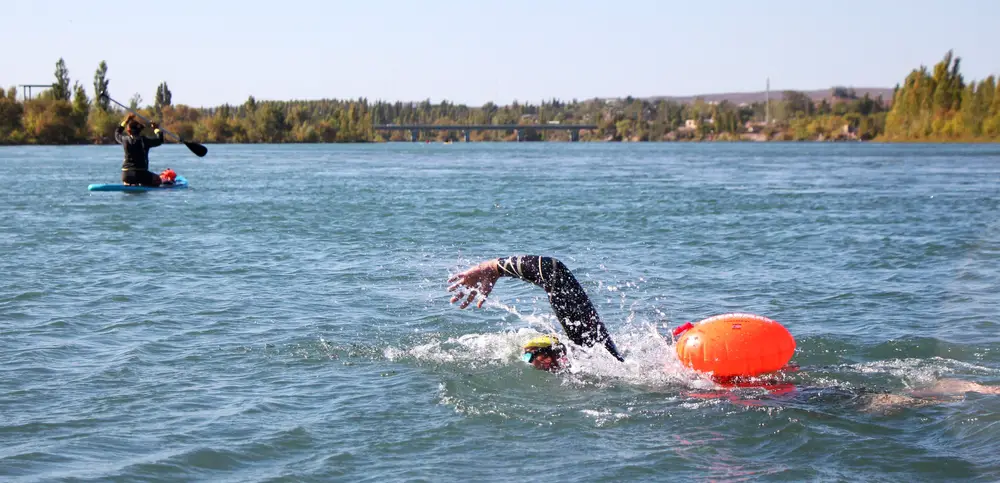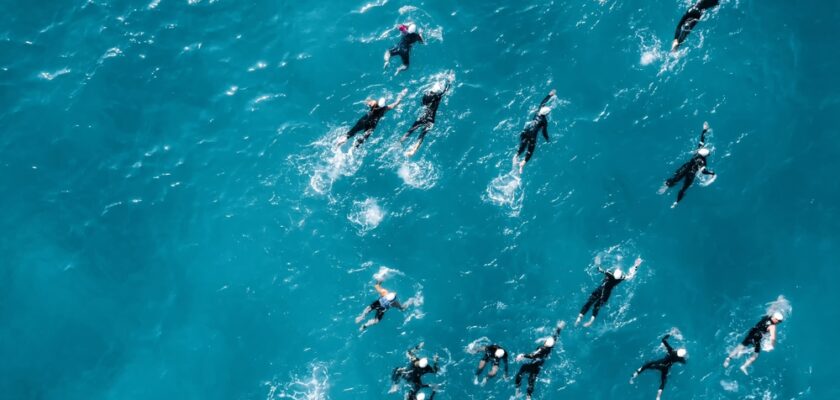The water marathon is a sport that is gaining prominence in the world of water sports. The sport consists of long-distance races that take place in open water, such as seas, rivers and lakes, demanding a lot of endurance, technique and physical preparation from the athletes.
Because it is a high-intensity sport that needs to keep its athletes safe, it has rules that need to be followed. With this in mind, we’ve put together a special article with the main rules of the aquatic marathon for you to get to know!
You’ll learn more about the place of competition, the length of the race, the scoring criteria, how many athletes compete, the penalties and infractions, and much more. Check it out!
Open your Betano account and get up to 1,000 reais in bonuses.
PIX payments, live games and super odds!
Click here to open your account!

Water marathon rules: complete list
- Race location;
- Duration;
- Scoring;
- Competitors;
- Infractions and penalties;
- Safety;
- Training.
Water marathon rules: race venue
The aquatic marathon is a sport that takes place in open water, and the choice of venue must be made very carefully to ensure the safety of the swimmers throughout the course.
Competitions can take place in seas, rivers or lakes, and the race course usually varies between 5 km and 25 km. The location must be properly marked with buoys or other markings, as long as they are visible and can guide the athletes during the race.
Water conditions are therefore important in the water marathon. Therefore, the water temperature must be monitored, and competitions should not be held in temperatures below 16°C, unless swimmers are wearing suits suitable for cold water.
The quality of the water must also be assessed to ensure that it is pollution-free and safe for the swimmers, so they don’t run the risk of becoming contaminated and catching diseases.
Water marathon rules: duration
The duration of a water marathon race can vary according to the distance of the course and the conditions of the venue. Shorter races, for example, such as 5 km, can last around an hour.
Longer 25 km races, on the other hand, can last more than five hours. The time limit for completing the race is set by the organizers and informed in advance to the competitors, leaving everything agreed.
This limit is the cut-off time, which is basically the maximum time allowed for swimmers to complete certain sections of the course.
This time is usually set in the sport to ensure the safety of the athletes, as well as good organization of the event. Swimmers who fail to pass the cut-off points within the set time are then withdrawn from the race.
Water marathon rules: scoring
In the water marathon, scoring is based on the order in which the athletes finish. The first to cross the finish line receive the highest score, which decreases progressively as the swimmers finish the race.
In multi-stage competitions, the athletes’ scores can be accumulated to determine the overall winner.
In the event of one or more ties, the total time spent in the race or performance in previous stages is taken into account. In many cases, a direct tie-break can be decided, in which the athletes compete again over a shorter distance.
Water marathon rules: competitors
The number of competitors in a water marathon can vary, depending on the capacity of the venue and the rules established by the organization before the start.
It is therefore quite common to have a maximum number of athletes, as this guarantees the safety and smooth running of the race. This limit is determined based on the width of the course and also on the support capacity of the safety and rescue teams.
Water marathon competitions can be divided into various categories, such as age, gender and skill level.
These divisions help to make the competition fairer and more balanced, allowing athletes of different profiles to compete in similar conditions.
Water marathon rules: infractions and penalties
There are several infractions that can happen during a water marathon, as it is a sport that demands a lot of attention and technique. These include cutting in, deliberately hindering other swimmers, using unauthorized equipment and receiving outside help.
Each of these infractions carries specific penalties, which can range from warnings to disqualifications, or even time deductions and loss of points. So athletes need to be very careful not to jeopardize their own performance.
Water marathon rules: safety
Safety is a priority in water marathons, as the sport can be dangerous if care is not taken.
Therefore, all swimmers must wear a safety buoy. As well as being an object that floats, it serves to increase the visibility of the athletes.
Safety and rescue teams must be present throughout the course, ready to intervene in the event of an emergency.
For this reason, various emergency protocols are established so that the professionals can deal with any unforeseen situation during the competition.
These protocols include procedures for rescuing swimmers in distress, evacuation in the event of abrupt changes in weather and water conditions, as well as immediate medical assistance for any athlete who needs it.
Water marathon rules: training
For everything to run smoothly, water marathon athletes need a rigorous training regime in order to compete at a high level. So their tasks are not only to swim long distances, but also to train in different water and weather conditions.
It’s also worth pointing out that general physical conditioning, such as strengthening the athletes’ muscles and cardiovascular endurance, is essential!
Adequate nutrition and hydration are also important for athletes’ performance during a water marathon. That’s why swimmers need to eat a balanced diet and make sure they drink enough fluids before, during and after the race.
Many athletes consume energy drinks and isotonic drinks to maintain energy levels during the competition, keeping their health during the race guaranteed.

Water marathon rules: complete list
- Race location;
- Duration;
- Scoring;
- Competitors;
- Infractions and penalties;
- Safety;
- Training.
If you enjoyed learning about the rules of the aquatic marathon, keep following the site and be sure to check out more special articles on this and many other sports. Your comments are also very welcome here!



